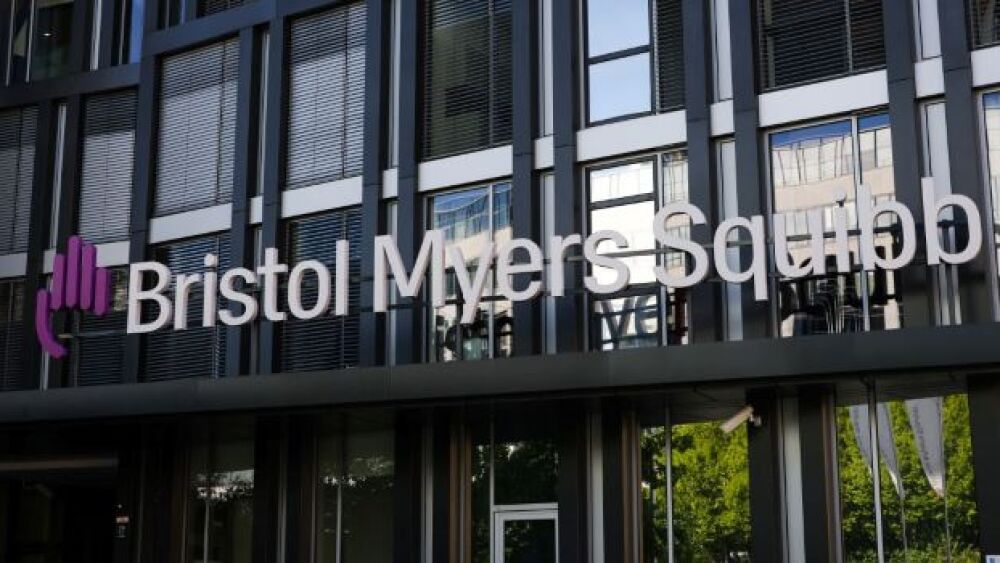On October 6, 2021, Bristol Myers Squib and Celgene terminated the original deal related to Abraxane and gave BeiGene 180 days of notice that it was withdrawing Abraxane from the deal.
Jeremy Moeller/Getty Images
In July 2017, BeiGene inked a deal with Celgene Logistics Sarl, which is now a subsidiary of Bristol Myers Squibb. The deal was a license and supply agreement giving BeiGene exclusive right to distribute and market Abraxane, Revlimid and Vidaza in China, excepting Hong Kong, Macau and Taiwan. Then, in March 2020, the Chinese National Medical Products Administration (NMPA) suspended importation, sales and use of Abraxane in China under the deal. BMS then initiated a recall of Abraxane in China. The entire suspension and recall were related to inspection findings at Bristol Myers Squibb-Celgene’s contract manufacturing plant in the U.S.
On October 6, 2021, Bristol Myers Squibb and Celgene terminated the original deal related to Abraxane and gave BeiGene 180 days of notice that it was withdrawing Abraxane from the deal. The Notice stated:
“Indeed, as you are aware, due to the National Medical Products Association decision to suspend the importation, sale, or use of Abraxane in China on March 25, 2020, Celgene has been unable to manufacture Abraxane for China and, thus, has been unable to manufacture Abraxane on a global basis…”
The notice went on to say that after the NMPA suspended manufacturing at the facility in Illinois, the company shifted production to a facility in Phoenix, Arizona. In July 2021, there was a failure in media fill testing at that facility. After a root cause investigation and corrective actions, there was still rejection of additional vials. Celgene is working on the issue, but currently all manufacturing of Abraxane at the Phoenix facility has halted, and they have notified the U.S. Food and Drug Administration.
The Illinois site was run by contract drug manufacturing (CDMO) company Fresenius Kabi and the Phoenix site is owned by BMS.
BeiGene indicates they believe the “reasons stated in the Notice do not provide a valid basis for terminating the Agreement with respect to Abraxane, and that the Notice is a tactical maneuver on the part of BMS-Celgene to reduce its damages in the on-going arbitration proceedings described above. The Company intends to contest the purported termination vigorously.”
On a little less threatening note, BeiGene also said that BMS and Celgene had not told them how long the manufacturing delays in Phoenix would last, but “would be happy to work with BMS-Celgene to help get the Phoenix manufacturing facility or another facility qualified to restore the supply of Abraxane for patients in China as soon as possible.”
Abraxane is approved for use in advanced non-small cell lung cancer with carboplatin, in advanced pancreatic cancer with gemcitabine, and for advanced breast cancer.
The other drugs are Revlimid, which with dexamethasone is used to treat multiple myeloma, and Vidaza, a chemotherapy used to treat myelodysplastic syndrome (MDS). They do not appear to be part of the dispute.
At least one analyst, Andrew Berens, with SVB Leerink, suggests that the real issue is competition between BMS’s checkpoint inhibitor Opdivo and BeiGene and Novartis’s tislelizumab. Berns projected BeiGene would rake in $100 million in Abraxane sales in China next year once the marketing hold is resolved. Berns is taking that figure out of the equation, but believes that the BeiGene-BMS deal isn’t as important as it used to be, particularly now that BeiGene and Amgen have a strategic collaboration that initiated in January 2020.
That deal is to accelerate Amgen’s oncology presence in China. Amgen also has a 20.5% stake in BeiGene, which it paid $2.8 billion in cash for. Under that deal, BeiGene is commercializing Amgen’s XGEVA (denosumab), Kyprolis (carfilzomib) and Blincyto (blinatumomab) in China. Two of the drugs will revert to Amgen, one after five years and one after seven. After the commercialization period, BeiGene will keep the rights to one of the drugs and be eligible for royalties on sales in China for another five years on the drugs returned to Amgen. XGEVA was launched in China in September 2019.
The two companies are also collaborating on 20 drugs from Amgen’s oncology pipeline in China and globally.
Another hit against Abraxane occurred in August 2021. Roche had an accelerated approval for its Tecentriq (atezolizumab) in combination with Abraxane for adults with unresectable locally advanced or metastatic triple-negative breast cancer (mTNBC) whose tumors express PD-L1. After consulting with the FDA, Roche withdrew the accelerated approval. It only affected the mTNBC indication in the U.S. for that indication. It was granted accelerated approval in March 2019, the first immunotherapy to be approved for that setting. It was based on progression-free survival (PFS) in the Phase III IMpassion 130 study, but continued approval was contingent on the results of IMpassion131. That trial failed to hit its primary endpoint.





